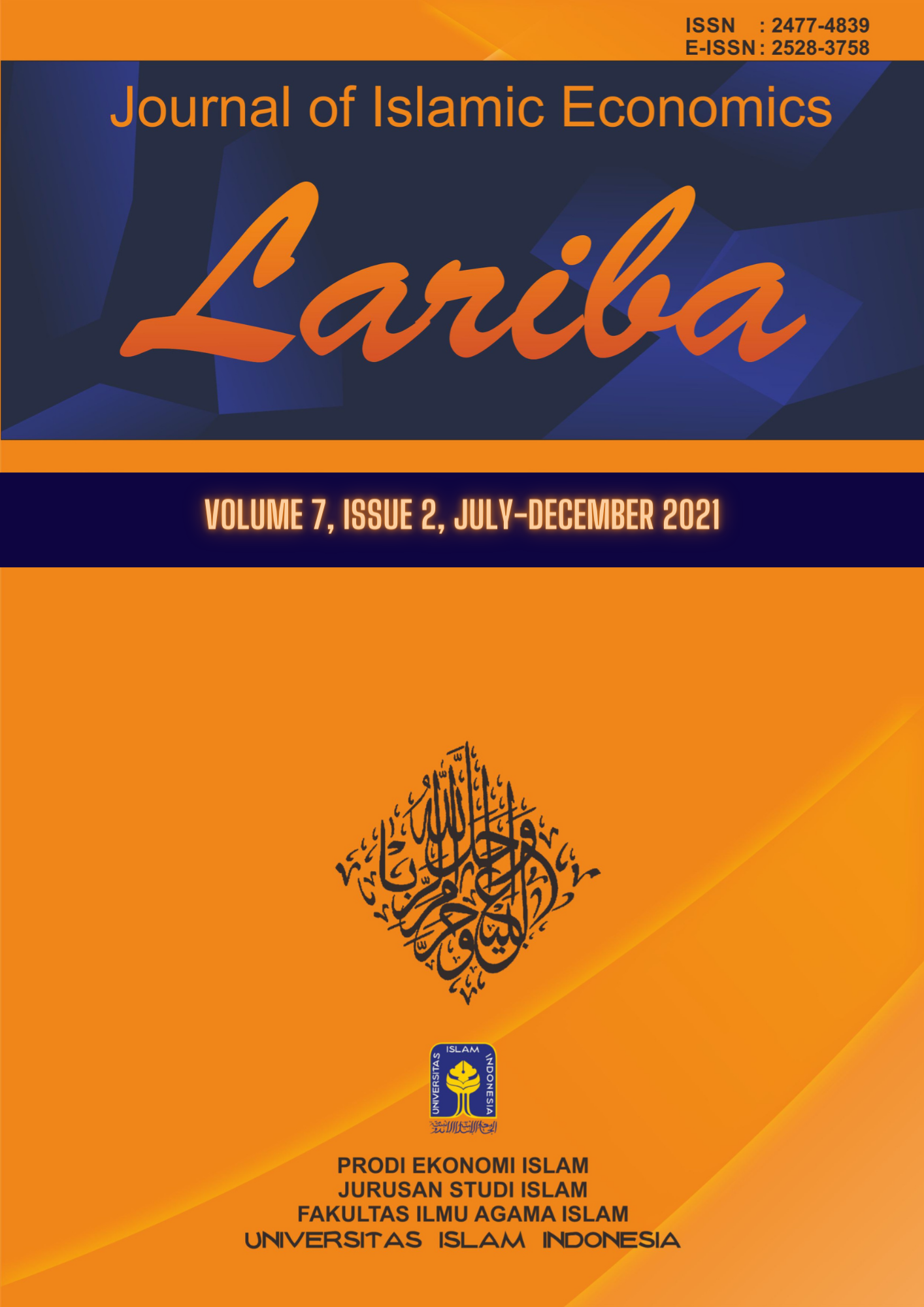Main Article Content
Abstract
The purpose of this research is to find out whether there is an effect of Capital Adequacy Ratio and Islamic Social Responsibility on Return On Assets both in terms of partial and simultaneous testing. Collecting data in this study is to use secondary data from the financial statements of Islamic companies listed on the Jakarta Islamic Index. By using two blades of analysis, namely simple linear regression analysis and multiple linear regression analysis. Based on the results of simple regression analysis, it is known that partially CAR affects ROA and partially ISR affects ROA. Then simultaneously CAR and ISR influence ROA. Therefore, the role of profit in the company has an influential role, because the main objective of the company's operations is to achieve maximum profit. Information on profit achievement is not only useful for external parties such as the public as users of Islamic financial institutions as service companies and internal parties as parties who carry out or run the company in order to determine steps how to run the company to make a profit.
Retraction Notice:
This article is retracted on April 17, 2022, after Editor in Chief found out that the same manuscript has been published in other journals: https://doi.org/10.19109/ieconomics.v7i2.8983 and https://doi.org/10.24090/mabsya.v3i2.4857
Article Details
Copyright (c) 2021 Yuli Astuti, Tulus Suryanto, Heni Noviarita, Surono Surono

This work is licensed under a Creative Commons Attribution-ShareAlike 4.0 International License.
Authors who publish with this journal agree to the following terms:
- Authors retain copyright and grant the journal right of first publication with the work simultaneously licensed under a Creative Commons Attribution License that allows others to share the work with an acknowledgement of the work's authorship and initial publication in this journal.
- Authors are able to enter into separate, additional contractual arrangements for the non-exclusive distribution of the journal's published version of the work (e.g., post it to an institutional repository or publish it in a book), with an acknowledgement of its initial publication in this journal.
- Authors are permitted and encouraged to post their work online (e.g., in institutional repositories or on their website) prior to and during the submission process, as it can lead to productive exchanges, as well as earlier and greater citation of published work (See The Effect of Open Access).




